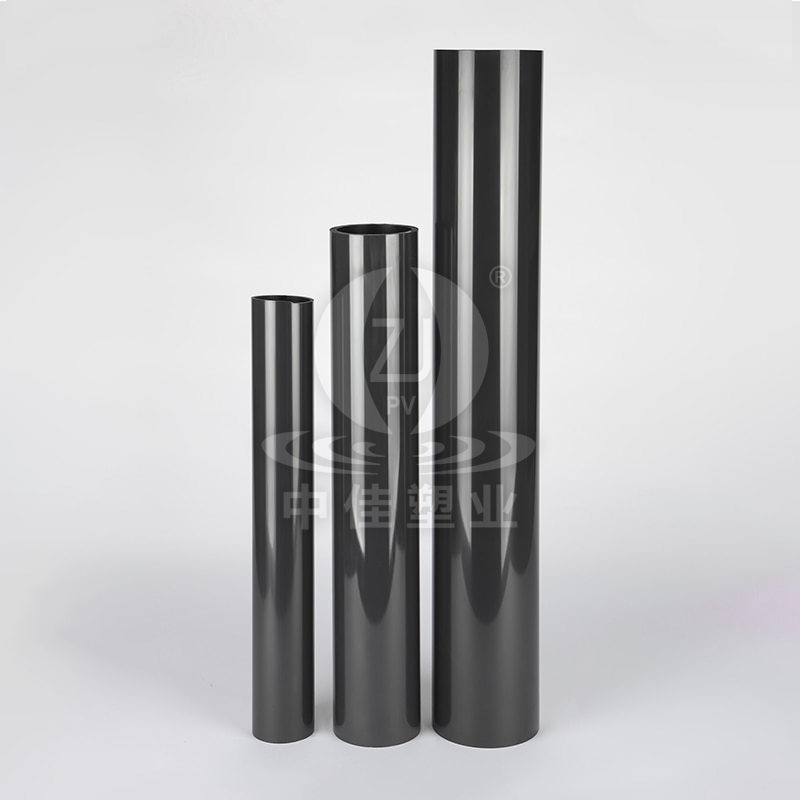

In modern construction, water supply, and industrial applications, the choice of piping material can significantly impact durability, safety, and operational efficiency. Among the various piping options, PVC-U S10 pipes have gained widespread recognition for their performance, reliability, and versatility. But what exactly are PVC-U S10 pipes, how do they function, and why are they preferred in many applications?
What Are PVC-U S10 Pipes?
PVC-U stands for unplasticized polyvinyl chloride, a rigid, durable plastic material that is resistant to corrosion, chemicals, and pressure. The S10 designation refers to the standard dimension ratio (SDR) of 10, indicating the pipe’s wall thickness relative to its diameter. This ratio ensures that the pipe can handle specific pressure ratings while maintaining structural integrity.
PVC-U S10 pipes are primarily used for water distribution, irrigation systems, drainage, and industrial fluid transfer, offering a lightweight, cost-effective, and long-lasting solution.
Why Is PVC-U Used in S10 Pipes?
PVC-U is chosen for its superior material properties, which make it ideal for piping:
Corrosion Resistance – Unlike metal pipes, PVC-U does not rust or corrode, even when exposed to chemicals or moisture.
Chemical Resistance – Resistant to most acids, alkalis, and salts, making it suitable for industrial fluids.
Lightweight – Easier to transport and install compared to traditional metal pipes.
Durability – Can last 50 years or more under normal operating conditions.
Low Maintenance – Smooth inner walls reduce scaling and clogging, minimizing maintenance needs.
These features make PVC-U pipes highly reliable for both residential and industrial piping systems.
How Are PVC-U S10 Pipes Manufactured?
The production process ensures consistent quality, strength, and durability:
Material Preparation – High-quality PVC resin is blended with stabilizers, lubricants, and other additives.
Extrusion – The mixture is melted and extruded through a die to form pipes of precise dimensions.
Cooling – Pipes are cooled gradually to prevent deformation and ensure dimensional accuracy.
Cutting and Testing – Pipes are cut to length and subjected to pressure and quality tests.
Marking – Product information, size, pressure rating, and standard compliance are printed on the pipe surface.
This process guarantees that each S10 pipe meets strict quality and safety standards.
What Are the Key Advantages of S10 Pipes?
The S10 specification offers multiple benefits in practical applications:
Pressure Resistance – Can handle moderate water and fluid pressure safely.
Smooth Interior Surface – Minimizes friction and reduces energy costs in fluid transport.
Lightweight and Flexible – Facilitates easy installation and alignment in complex systems.
Longevity – Resistant to corrosion, scaling, and biological growth, extending service life.
Environmentally Friendly – Can be recycled and has minimal impact during production and disposal.
These advantages make S10 pipes a cost-effective and efficient choice for diverse piping systems.
How Are PVC-U S10 Pipes Used in Water Supply Systems?
In municipal and residential water supply, S10 pipes are preferred due to:
Clean Water Transportation – Non-toxic material ensures safe drinking water.
Corrosion-Free Operation – No metal leaching or rust, maintaining water quality.
Durable Connections – Compatible with solvent welding, gasketed joints, and mechanical fittings for leak-free installations.
Cost Efficiency – Lower installation and maintenance costs compared to metal alternatives.
They are widely used for potable water distribution, irrigation networks, and industrial fluid conveyance.
How Do S10 Pipes Perform in Industrial Applications?
PVC-U S10 pipes are suitable for a variety of industrial applications:
Chemical Transport – Resistant to acids, bases, and other industrial chemicals.
Wastewater Systems – Handles moderately contaminated water without corrosion or scaling.
Cooling and Processing Systems – Lightweight, corrosion-resistant piping for process fluids.
Agriculture and Irrigation – Durable pipes for irrigation networks and water storage systems.
Their chemical resistance, longevity, and ease of installation make S10 pipes ideal for industrial fluid management.

How Are PVC-U S10 Pipes Installed?
Installation is straightforward and cost-effective:
Site Preparation – Ensure proper trenching or pipe support.
Pipe Cutting – Cut pipes to required lengths using suitable tools.
Joining Methods –
Solvent Welding – Chemical bonding for permanent connections.
Gasketed Joints – Allows flexibility and easier maintenance.
Mechanical Couplings – For quick installation in industrial systems.
Alignment and Support – Proper alignment and support prevent sagging or stress points.
Pressure Testing – Ensure leak-free operation before commissioning.
Correct installation maximizes performance, longevity, and safety.
How Do S10 Pipes Compare to Other PVC Pipe Classes?
PVC pipes come in various standard dimension ratios (SDRs) or schedules, such as S5, S10, S12.5, etc. S10 pipes offer:
Moderate Wall Thickness – Balances pressure handling with lightweight design.
Cost-Effectiveness – Less material than thicker pipes but sufficient for medium-pressure applications.
Versatility – Suitable for domestic, municipal, and industrial uses.
Choosing the right class ensures optimal performance and cost-efficiency for the intended application.
How Are S10 Pipes Maintained?
PVC-U S10 pipes require minimal maintenance:
Periodic Inspection – Check for leaks, joint integrity, and damage.
Cleaning – Flush system if sediment or biofilm accumulates.
Protection from UV Exposure – Prolonged sunlight may degrade PVC; use coverings if exposed outdoors.
Avoid Mechanical Stress – Prevent impacts or excessive bending that could compromise structural integrity.
Proper maintenance ensures long-term durability and efficient operation.
Are PVC-U S10 Pipes Environmentally Friendly?
Yes, these pipes are considered eco-friendly due to:
Non-Toxic Material – Safe for drinking water and food applications.
Long Lifespan – Reduces replacement frequency and material consumption.
Recyclable – PVC can be reprocessed into new products.
Energy Efficiency – Smooth inner walls reduce pumping energy in fluid systems.
These factors make S10 pipes a sustainable and responsible choice for modern piping systems.
Final Thoughts: Why Choose PVC-U S10 Pipes?
PVC-U S10 pipes combine durability, chemical resistance, ease of installation, and cost-effectiveness. They are suitable for a wide range of applications, including water supply, wastewater management, chemical transport, and industrial fluid systems.